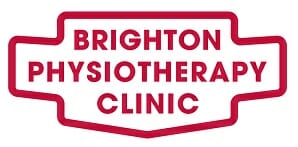Neck Pain
Neck pain (historically known as cervicalgia) is an intense pain and discomfort in the neck which requires medical attention for it to dissipate. Cervicalgia is often commonly referred to as a ‘crick in the neck’. It can slow you down and impact your work and other day-to-day activities.
Types of Neck Pain
There are two major types of neck pain: acute neck pain and chronic neck pain.
Acute Neck Pain
This is a severe stabbing or shooting pain that can move along the base of the neck into the shoulders. As a result, some patients suffering from acute pain weakness in the arm, or loss of coordination in the arms and legs. In some cases, acute neck pain can go away on its own in a matter of days.
Chronic Neck Pain
This is a pain that persists for a prolonged time. The most common cause of this type of a neck pain is a pinched nerve, which can be as a result of a cervical herniated disc (*user-friendly term*). In this case, the intensity of the pain will determine whether a non-surgical or surgical approach is necessary as treatment. Alternatively, there are other potential causes of chronic neck pain (stated below)
Causes of Neck Pain
The causes of neck pain are unique to every individual. Some causes may include:
- Sustained poor posture or sleeping positions
- Poor workplace ergonomics
- Muscle fatigue from overuse
- Repetitive overuse while performing heavy lifting or manual work
- Trauma – such as whiplash in an accident.
- Meningitis
- Spinal cancer
There are certain risk factors that can make one susceptible to neck pain; these factors include:
- Age (40 – 60 years)
- Obesity
- Athleticism
- Sleeping on your stomach
- Stress
- Poor post-workout routine

Signs and Symptoms of Neck Pain
How Can Neck Pain Be Diagnosed?

Treatment for Neck Pain
The treatment for neck pain largely depends on the cause and the intensity of the pain.
Physical therapy
Other treatment options include:
Medication
Over the counter pain relievers such as acetaminophen or ibuprofen, opioids, and nonsteroidal anti-inflammatory drugs (NSAIDs) are used by some patients to treat neck pain. They provide short-term relief and reduce pain as well as inflammation.
Cervical Collars
Cervical collars take the strain off the neck by limiting head mobility, thus allowing the neck muscles to heal.
Surgery
If cervicalgia does not respond to other conservative measures, cervical spinal surgery may become necessary.
Get Help
If you are experiencing neck pain, physiotherapy and osteopathy can provide the relief you need. There’s no need to suffer in silence.
Contact us today for a better assessment of the disorder and begin your healing journey.
